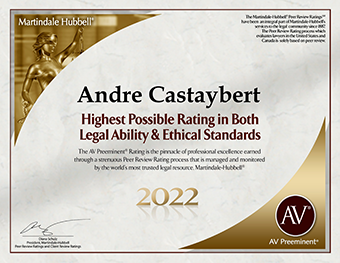Can Trademark Rights Be Enforced If The Mark Has Not Been Registered?
Yes. The ownership of a trademark registration is not a prerequisite for filing a trademark infringement action. If the trademark has been used in a way that has created a public association between the mark and the products or services, the owner of the trademark may possess enforceable common law trademark rights.
What are the benefits of having a Federal registration? There are two types of federal registrations in the United States: Principal Register registrations and registrations on the Supplemental Register. Both Principal and Supplemental Registrations confer upon the registrant valuable procedural and remedial benefits. Among these benefits are:
- The registration can be used as a basis for suit in federal courts.
- The owner may use the r registration notice, which tends to discourage third party innocent infringement.
- The registration will be located by Trademark Examiners when conducting trademark searches and may therefore be cited as a bar against the registration of similar marks in later filed applications.
- The registration will also be located in clearance searches conducted by third parties and may therefore discourage adoption of a similar mark.
- The registration can be the basis for collecting treble damages for infringement of trademarks.
Marks that are registered on the Principal Register confer the following significant additional benefits:
- A Principal Register registration is prima facie evidence of the validity of the registration and of the registrant’s ownership thereof. In an infringement action the owner of a Supplemental Register registration would be required to prove ownership and validity of its claim.
- A Principal Register registration is constructive notice of the registrant’s claim of ownership. A Supplemental Register registration is not deemed to be constructive notice of such a claim.
- A Principal Register registration can become incontestable under Section 15 of the Lanham Act, (which means it is not thereafter subject to cancellation on the grounds that it is descriptive, among other basis). A Supplemental Register registration can never become incontestable.









